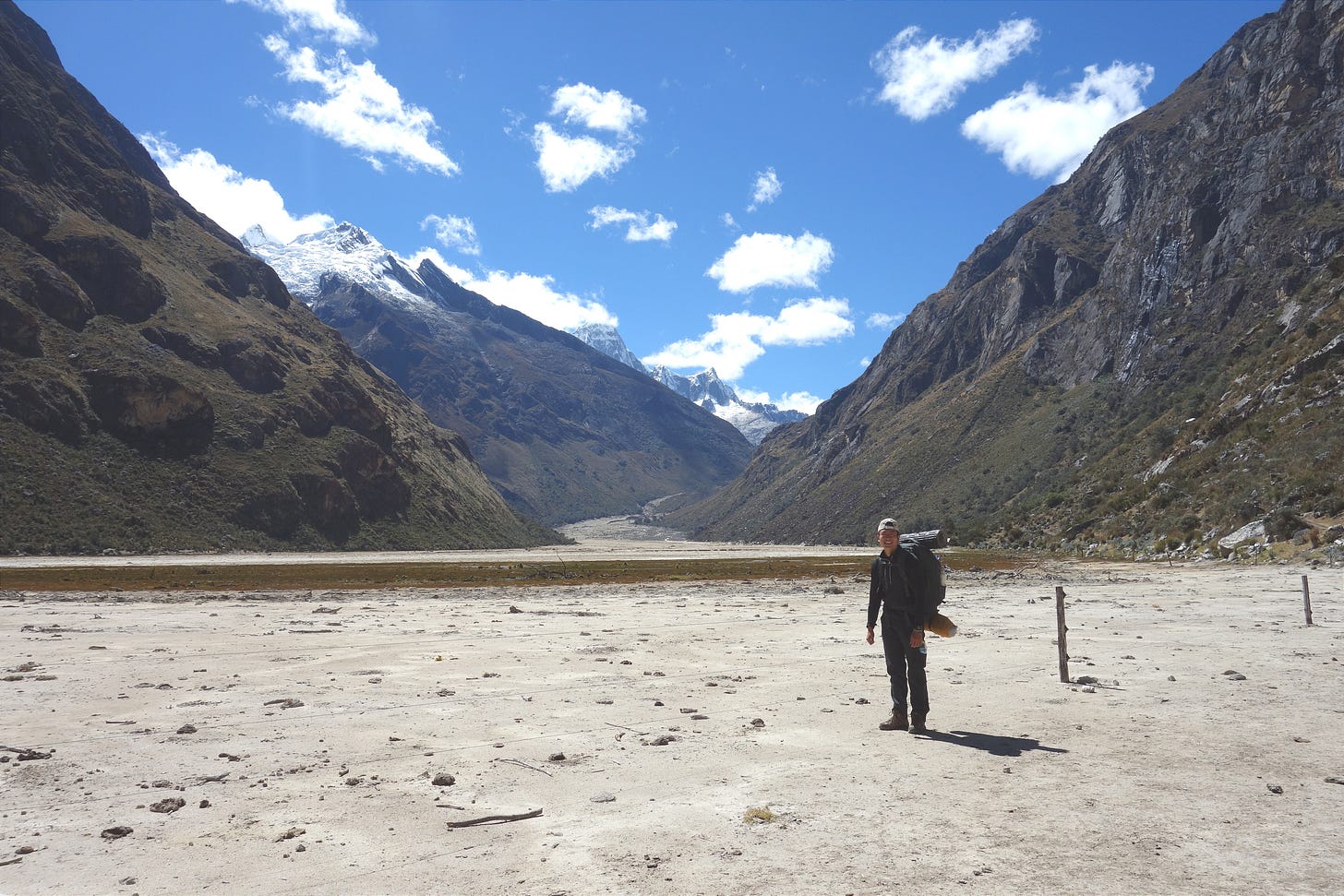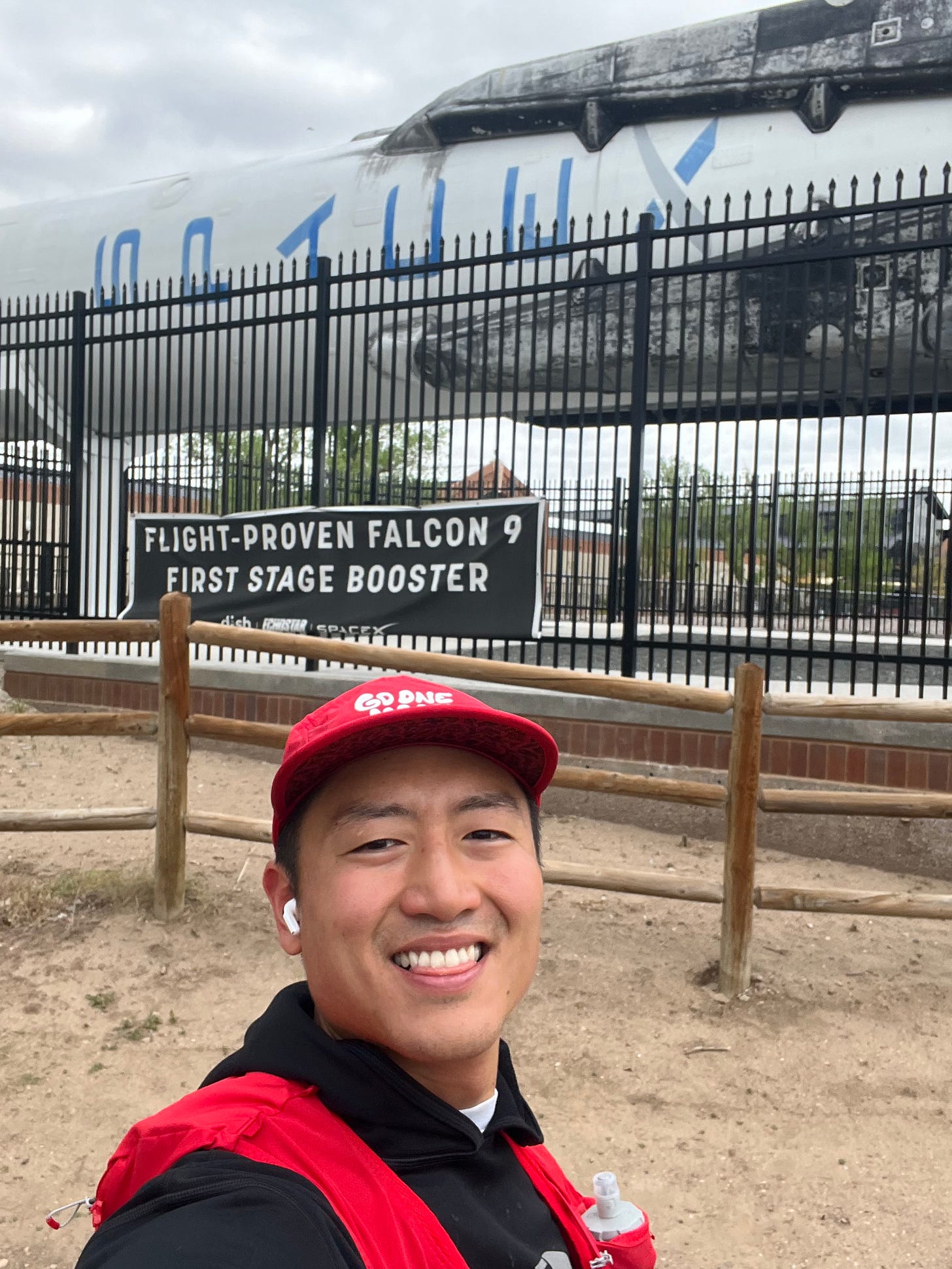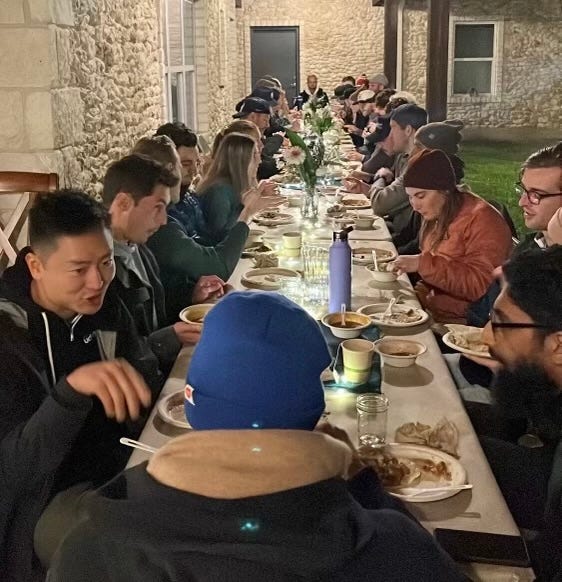Misogi 2024: The Hennepin Hundred
On Saturday, October 5th, I attempt the hardest 30-hour challenge of my life, my first 100-mile ultramarathon. Whatever happens, I’m proud of how far I’ve come.
In today’s post, I share how peer pressure helps you achieve big goals, how not to share goals, and how a Japanese water-cleansing ritual can change your life.
Social accountability is a powerful tool for change. But like anything ‘with great power, comes great responsibility’, and sharing your goals is risky.
November 9th, 2023. I fly into Austin, Texas for my first Alluviance Immersion. Dozens of people are chatting outside as we wait for our shuttle.
I’m surrounded by 50 other top performing tech salespeople who’ve invested thousands of dollars to hone their craft, build community, and master the inner game.
We’re here for the same purpose — to improve our health, wealth, and relationships — the holy trifecta of personal, professional, and spiritual growth.
The theme of the weekend is ‘commitment’ and people are committing to things like 100 days of hot yoga, going to the gym everyday before work, meditating everyday for 5 minutes.
I’m speaking with a new friend about Misogi. We laugh at the ideas we bring up, “can you imagine running 100-miles?”
Misogi is a Japanese ritual involving purification and transformation by cleaning the body and mind, and what Jesse Itzler refers to it as ‘a unique event so challenging it defines your year.’
The next day, I commit to The Hennepin Hundred, a flat trail following a canal from Sterling to Colona, Illinois.
Every Misogi I’ve had, pushed my mind, body, and soul past its limits, growing the boundaries of what I could endure and redefining where my edges were.
Like a blacksmith making a sword, my will was the hammer, my physical pain was the heat, and my understanding of human limitations, tolerance to stress, and calves were the steel — all being shaped and refined into something more durable.

Each Misogi tested me with challenges beyond my willingness to overcome them. Putting myself in situations where I had no choice but to grow, forced me to.
One of those tests came near Joshua Tree National Park. My back tire popped because of a cactus thorn.
I sat with my head hung low, staring at the grains of sand on the side of the road in the faint glow of moonlight.
Moments like this taught me, even when your spirit’s deflated, much like the tube on a tire, the solution is simple.
Give yourself a minute to moan. Patch yourself back up. Pump in new air. And put yourself in situations where you must go on.
I was in the middle of a desert where quitting was not an option. I found the strength to carry on because I had to — each pedal stroke branded itself into my quads.
By signing up for a Misogi, your tolerance for stress increases, and most other stressors in your day-to-day experience feel easy by comparison.
What made these Misogi’s possible was public commitment. Without peer pressure, I would have quit, and more likely than not, I never would have started.
Robert Cialdini refers to this as ‘the commitment and consistency bias’, a strong internal and external pressure to follow through, rooted in a persons desire to appear reliable, trustworthy, and logical in one's action.
The danger of public commitments is — you can commit to the wrong things, too many things, and things that no longer serve you. Then you feel trapped and overwhelmed, unable to focus on what matters.
Around the same time I committed to The Hennepin Hundred, I also said I would get 10,000 newsletter subscribers, post everyday on LinkedIn, make $1M in a year, grow my community to 1,000 people, lift 1,000+ lbs and, a zillion other things.
I didn’t anticipate how challenging it would be doing everything at once. I felt shame for having so many goals and making little to no progress on them.
I questioned everything — my priorities, how much to share, my motivation — my inner dialogue was exhausting.

While I did emerge from my cave a better person, the time I spent there was much longer, painful, and uglier than I care to admit. I fell into old habits, isolated myself, and spent more time in fear, instead of acting from courage.
Fear and courage is a post for another day. The takeaway here is to make sure your goals are SMART: Specific, measurable, attainable, relevant, and time-based.
While I didn’t want to admit it then, my goals weren’t attainable. When making goals, less is often more and when you’re not sure how realistic your goals are, getting feedback helps.
Takeaway #1: Find a community of people and surround yourself with big ideas. Read books. Listen to stories. Engage with people online. You don’t have to pay thousands of dollars to connect with others. Pick your next Misogi and watch your life change.
Takeaway #2: Public commitments are powerful tool for accountability. Use the commitment and consistency bias to follow through on your most important goals. Social pressure is a double-edged sword so be wise before sharing.
Takeaway #3: Make sure your goals are SMART: specific, measurable, attainable, relevant, and time-based. Don’t forget any of these elements, and don’t overcommit.






